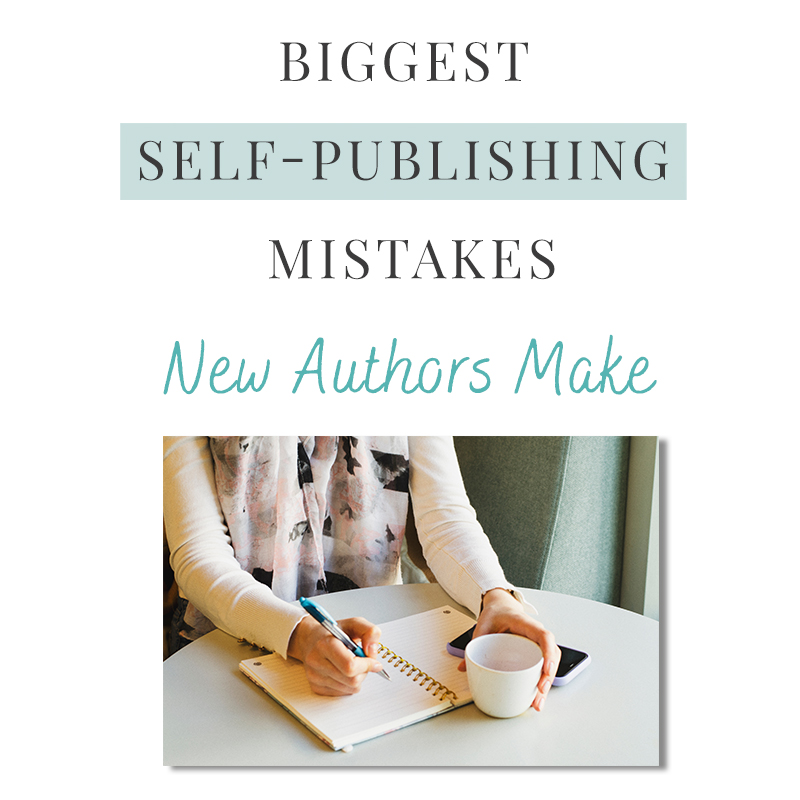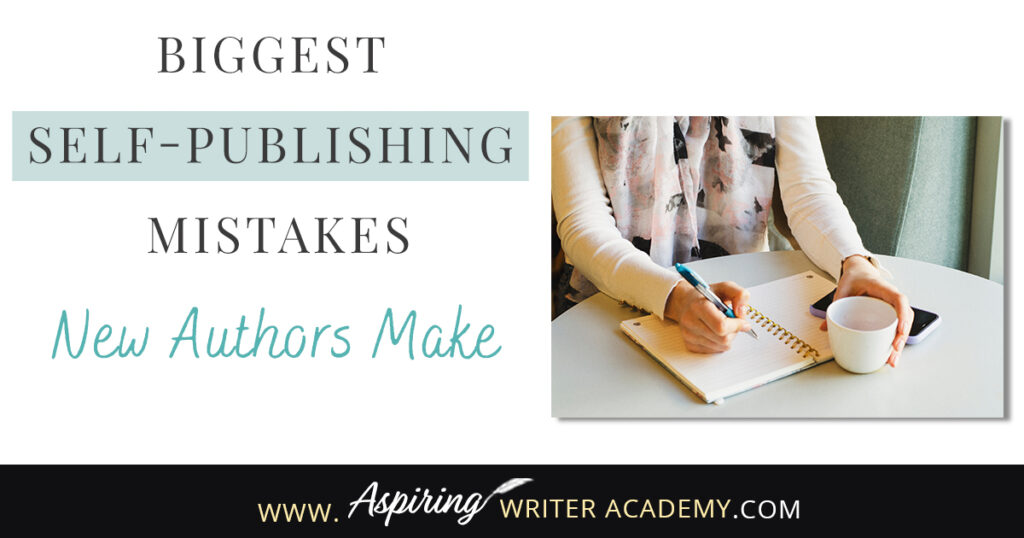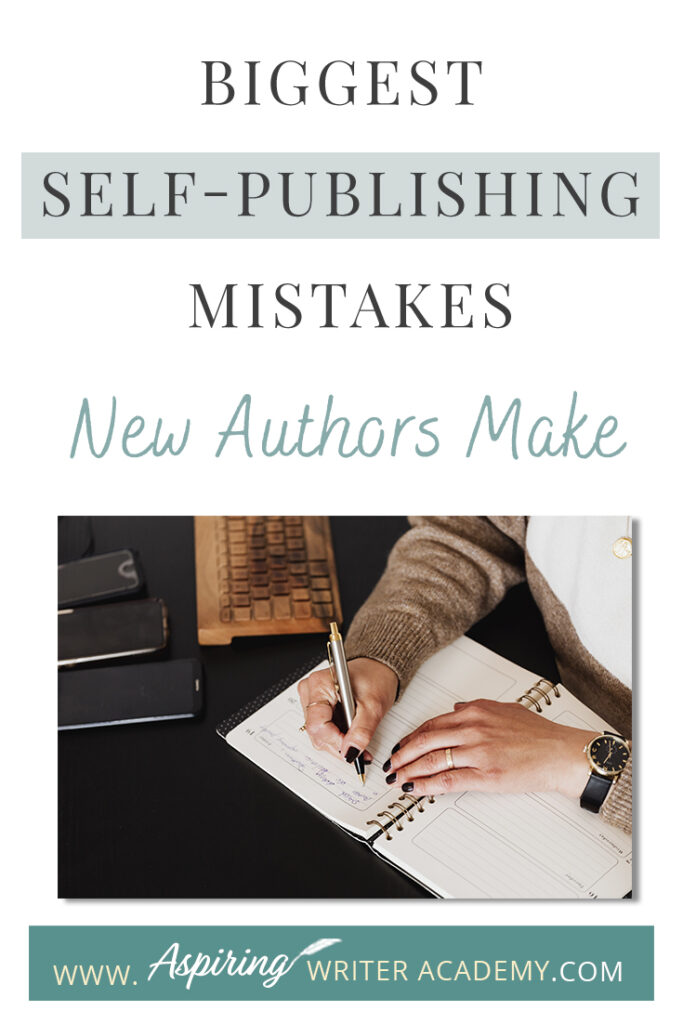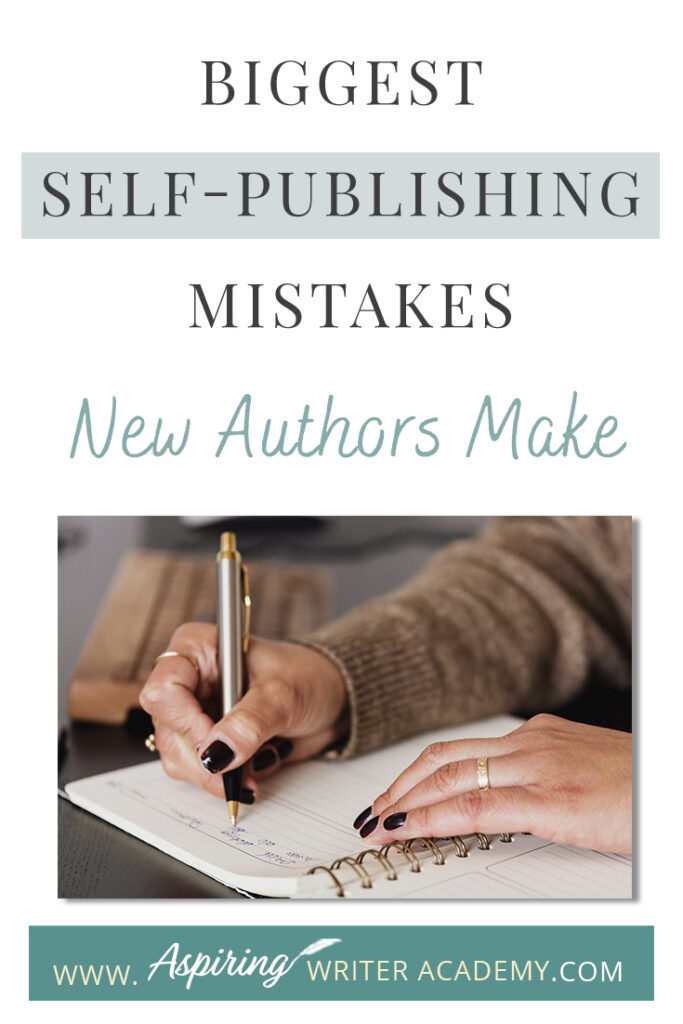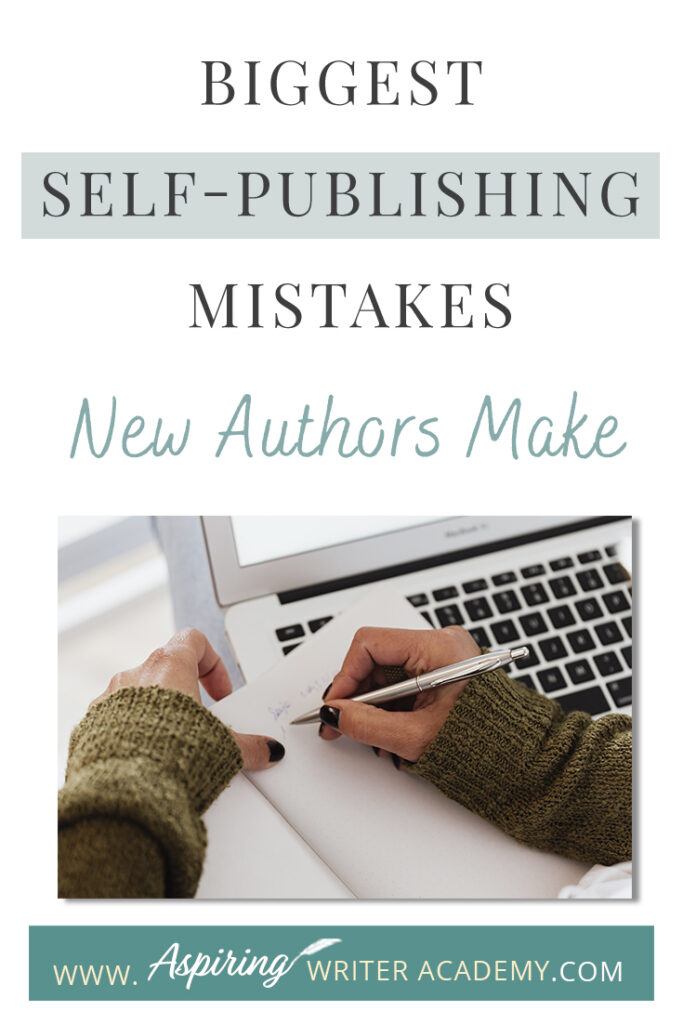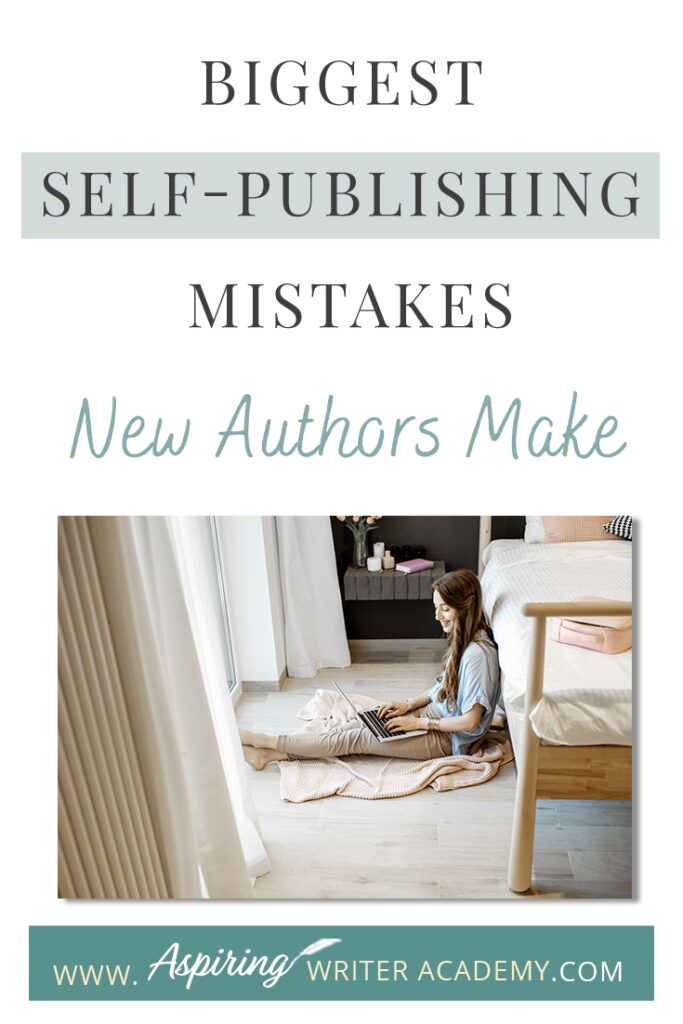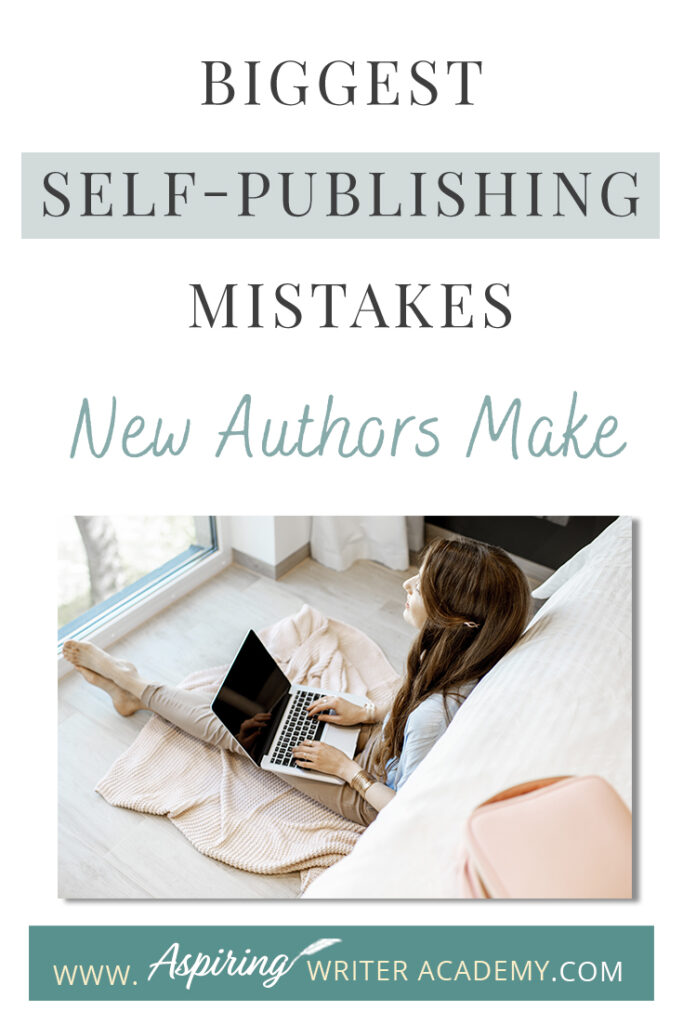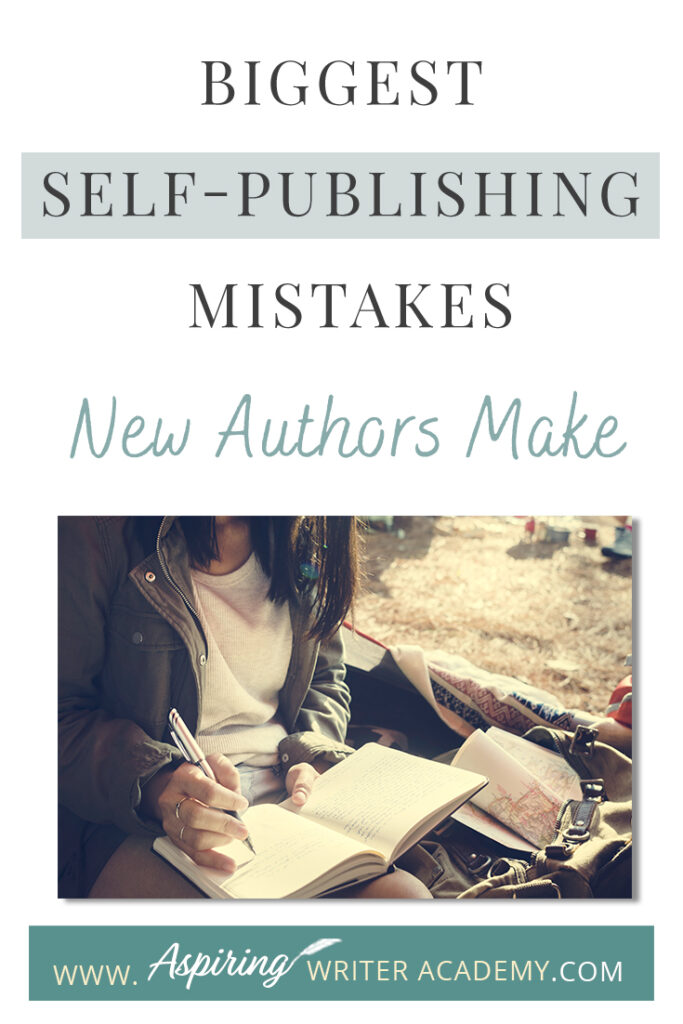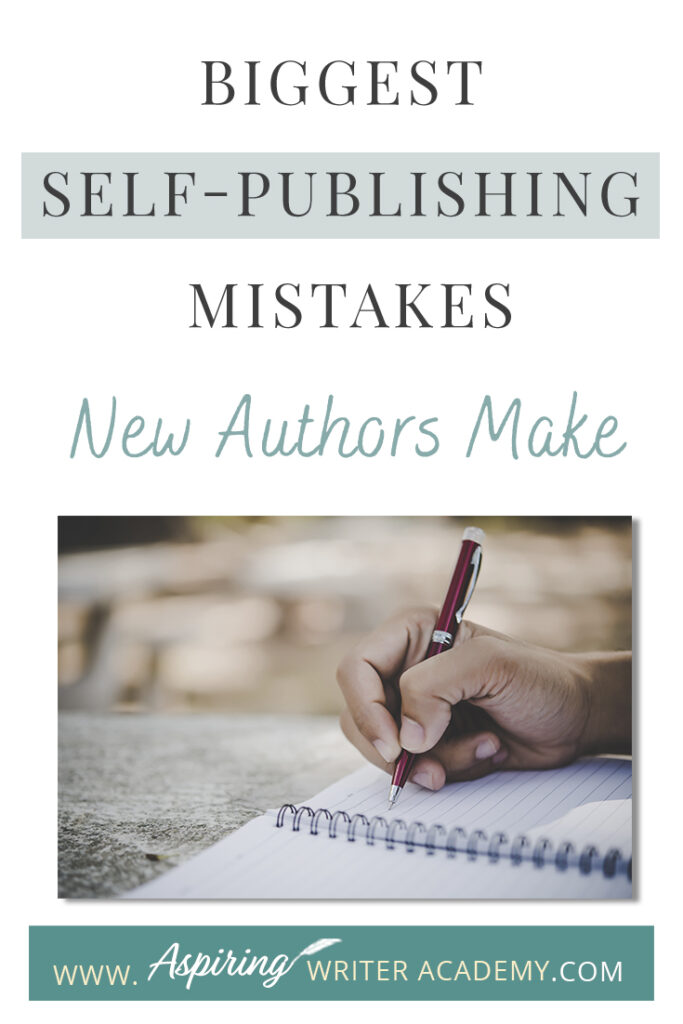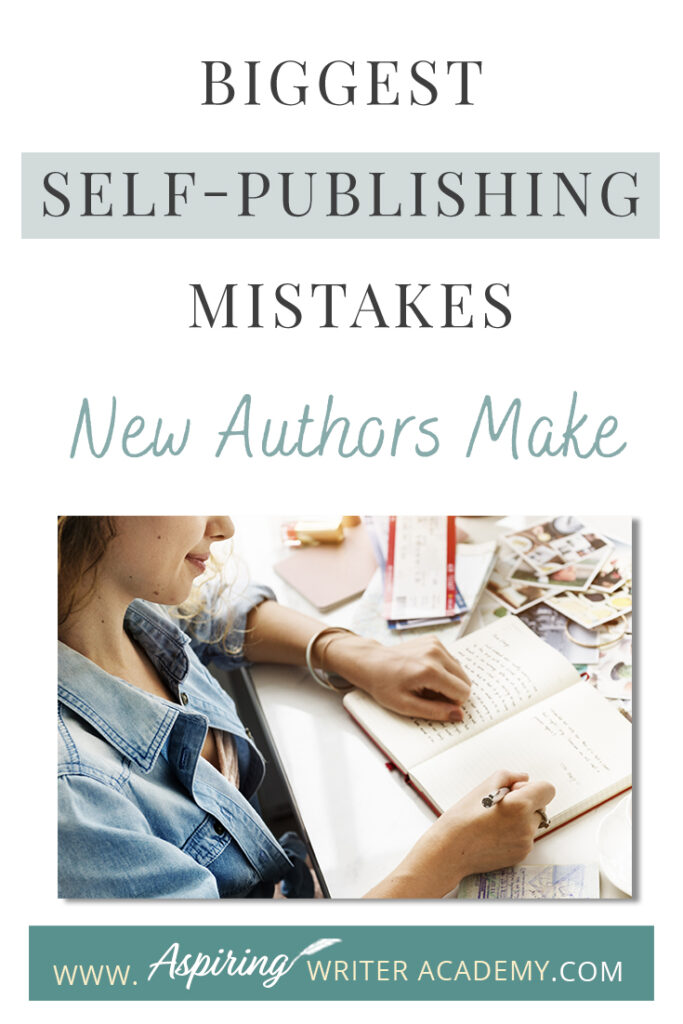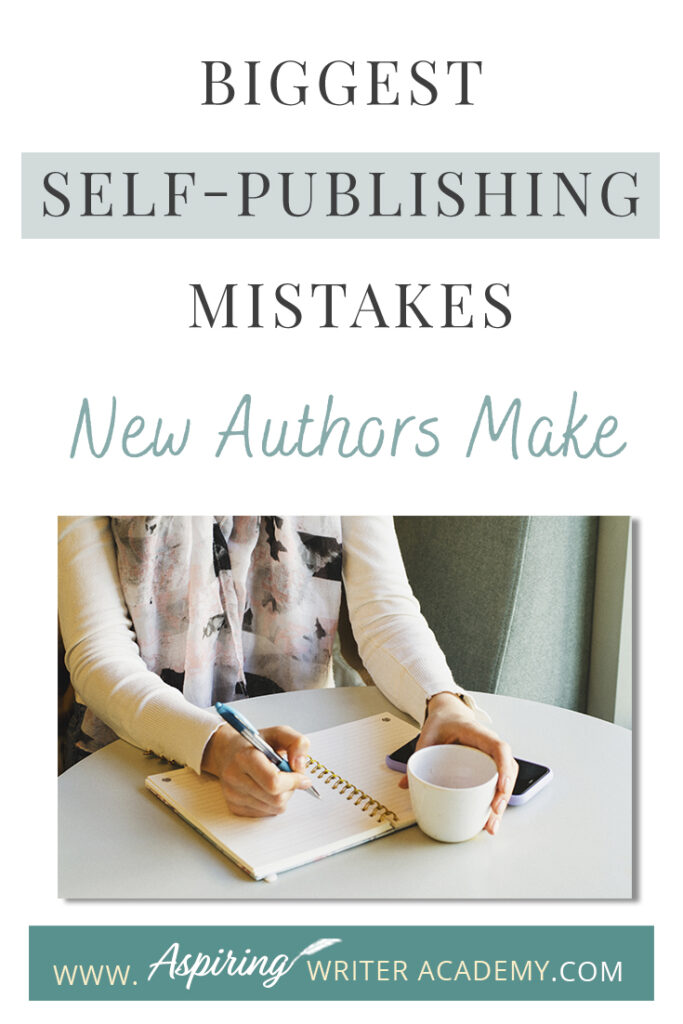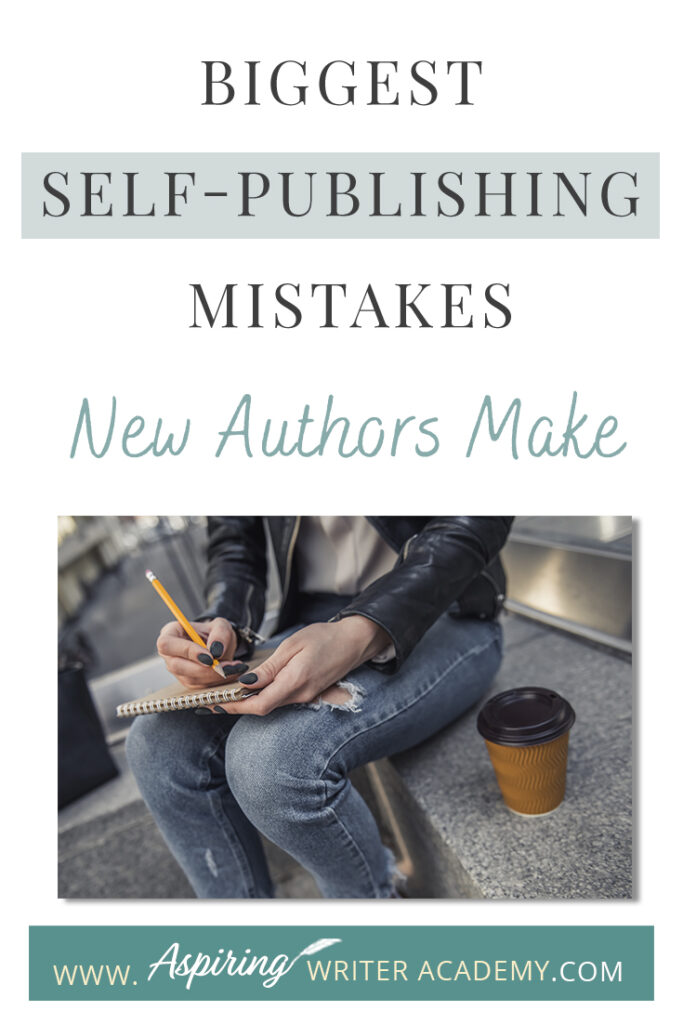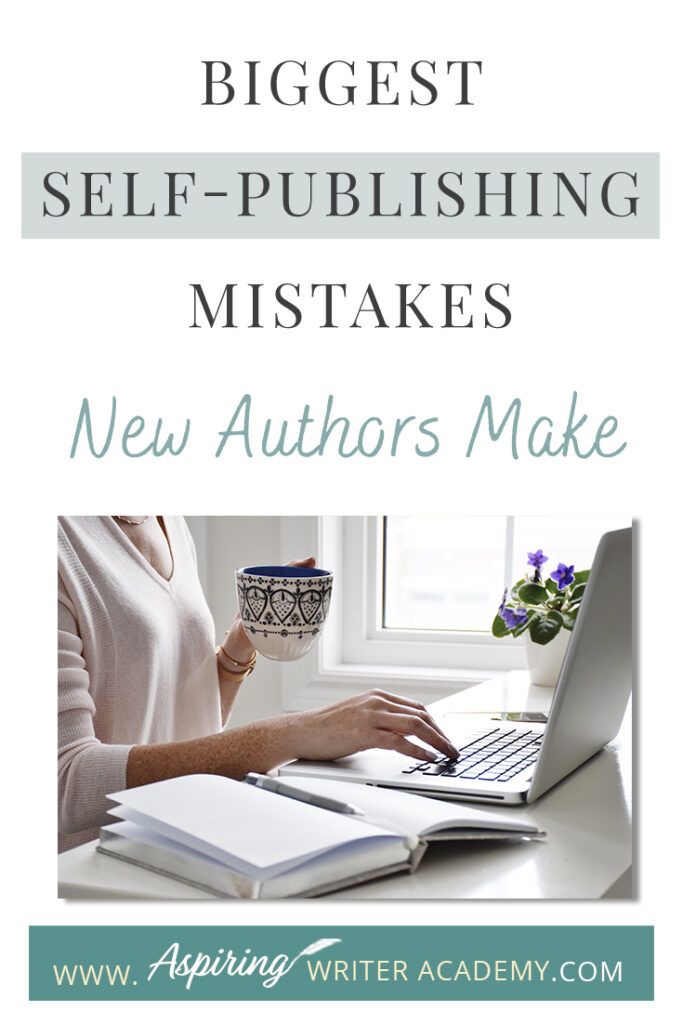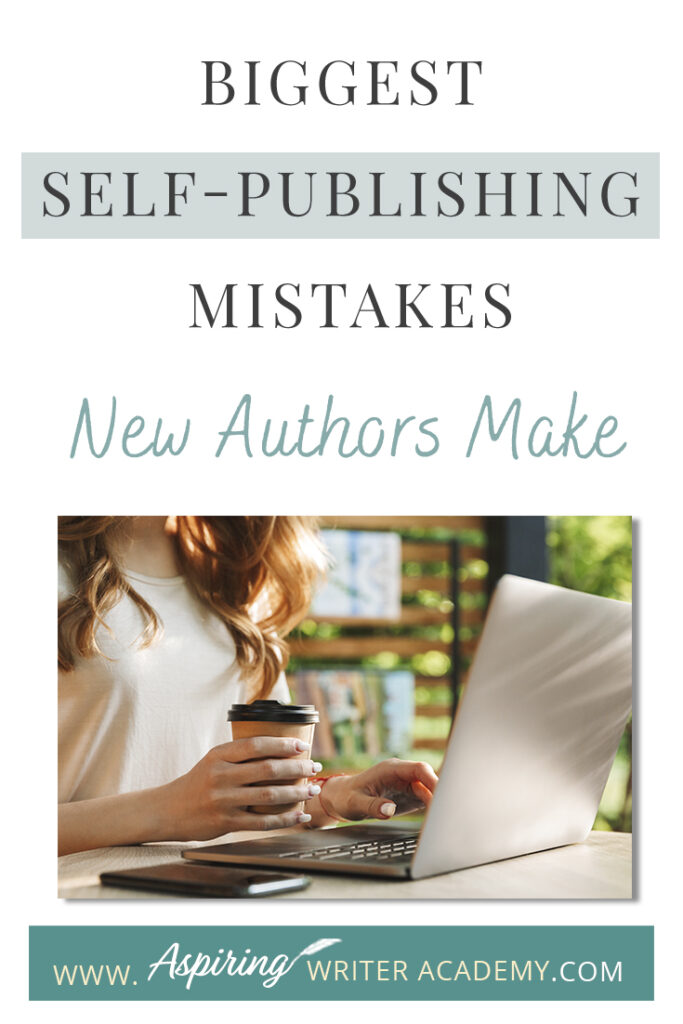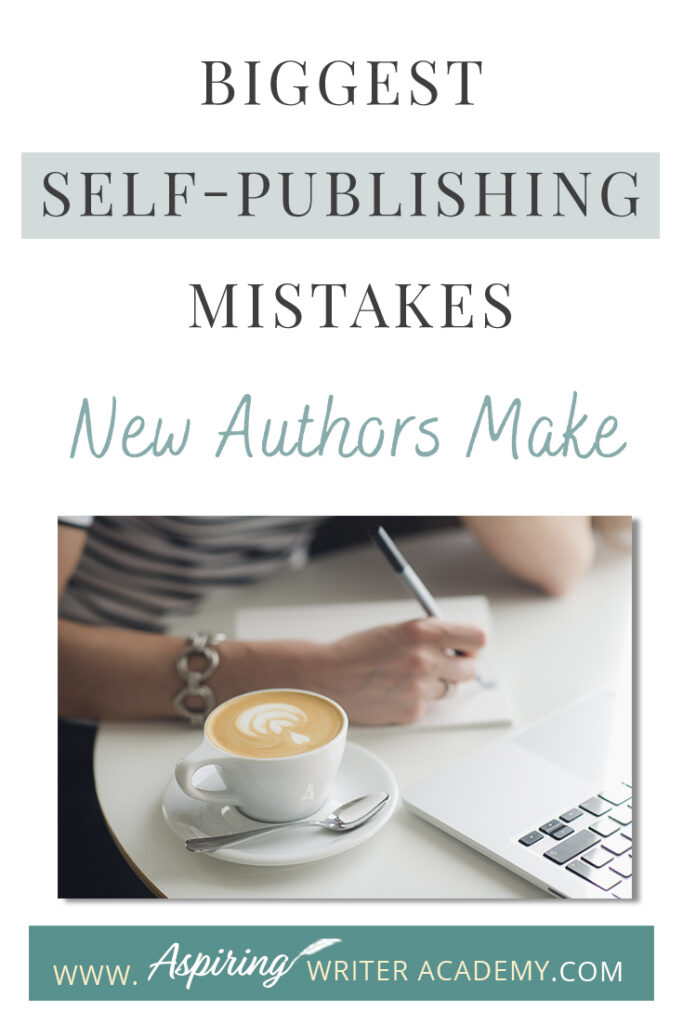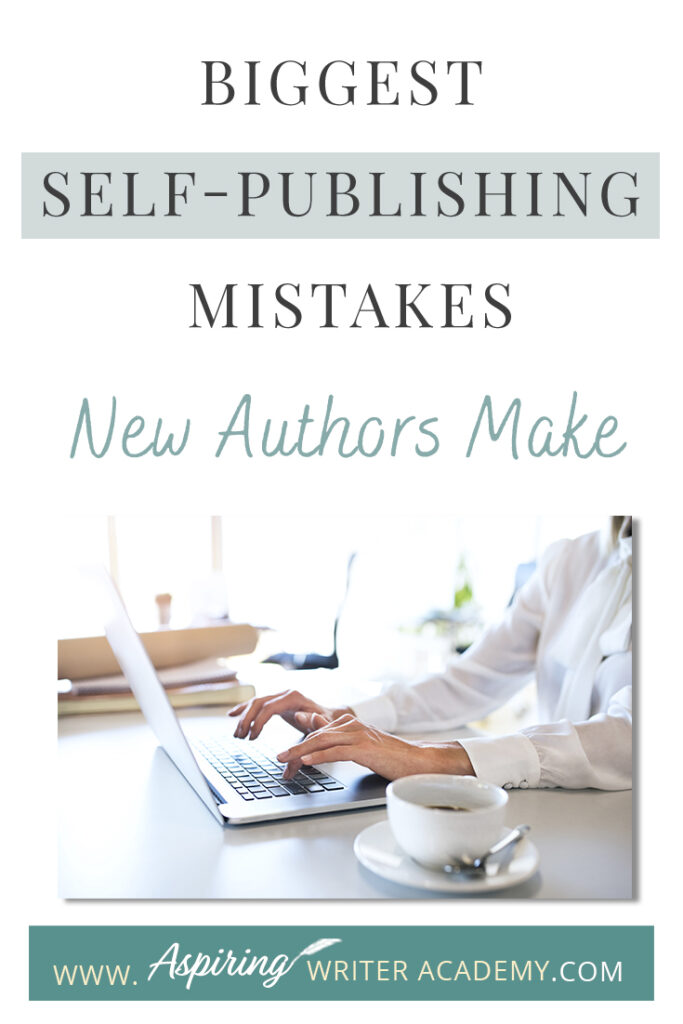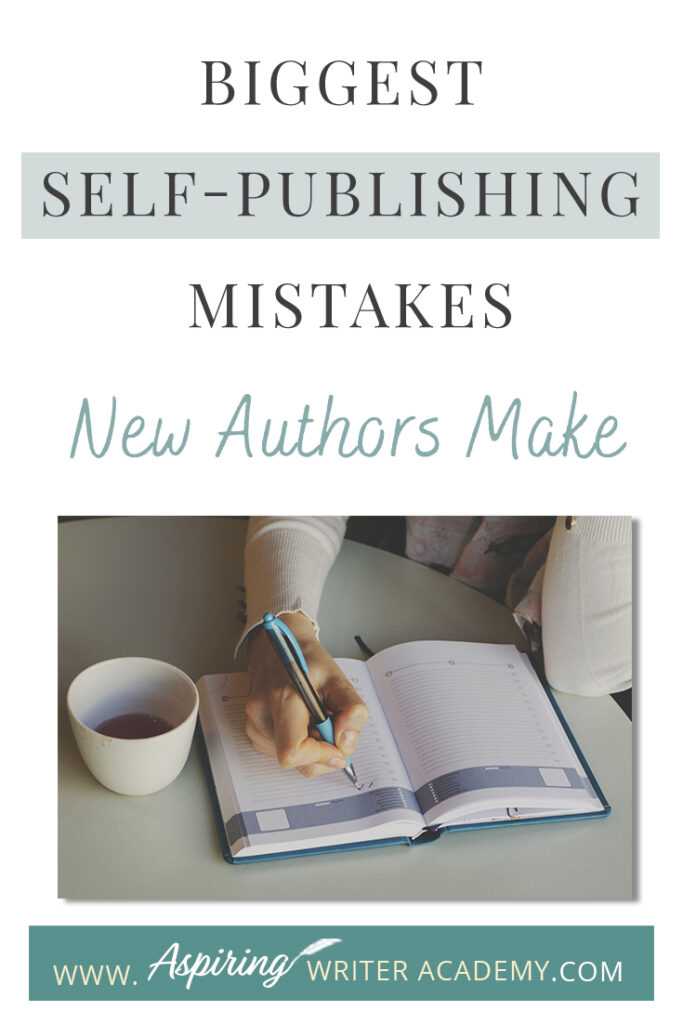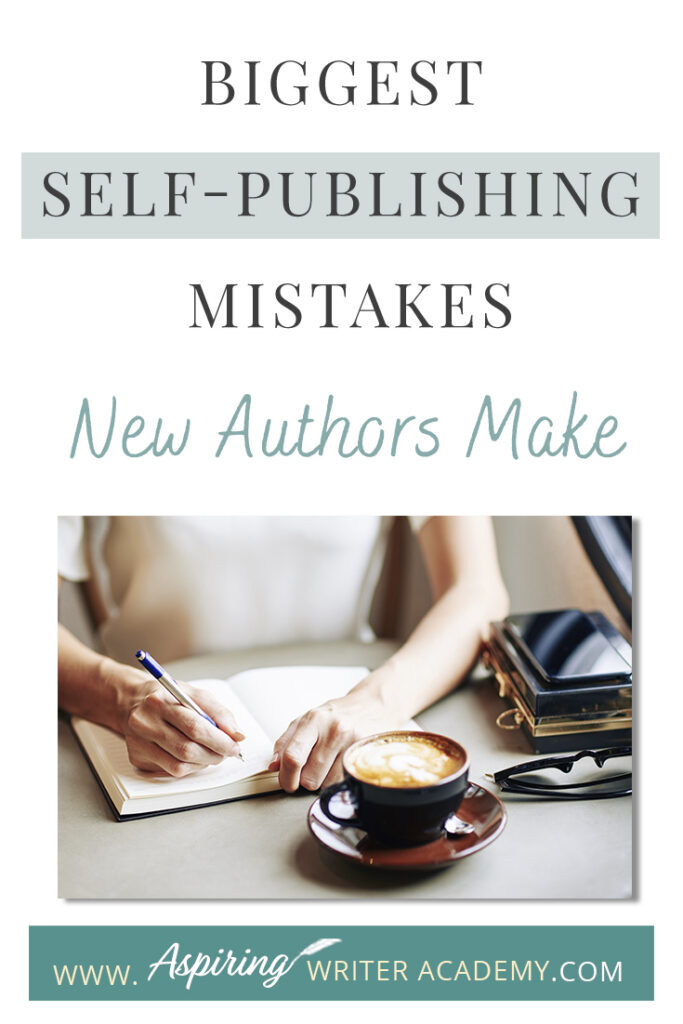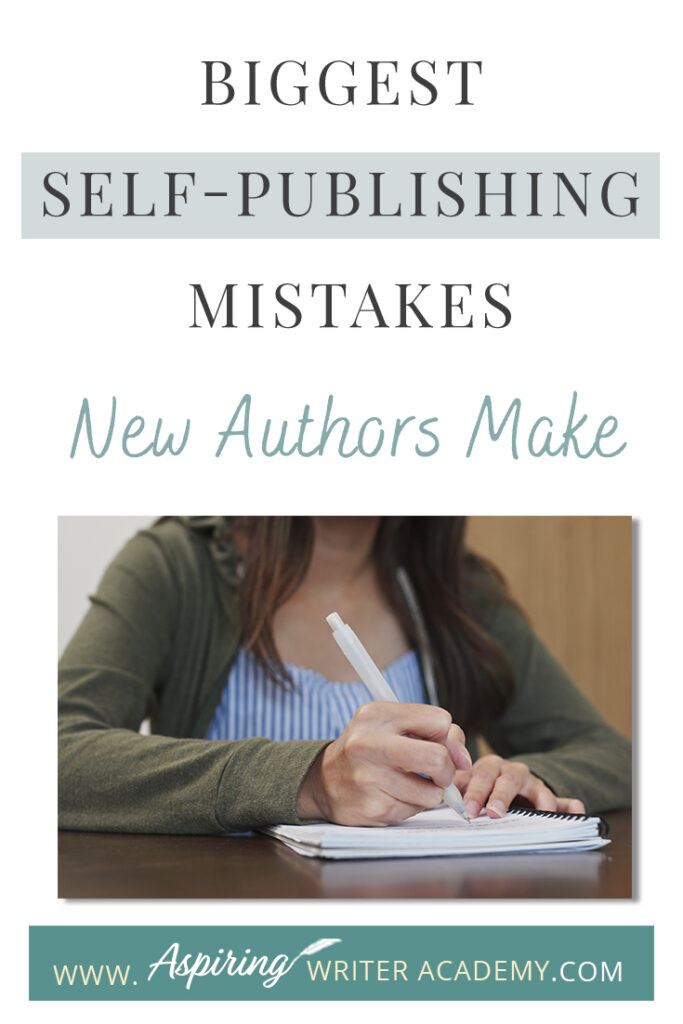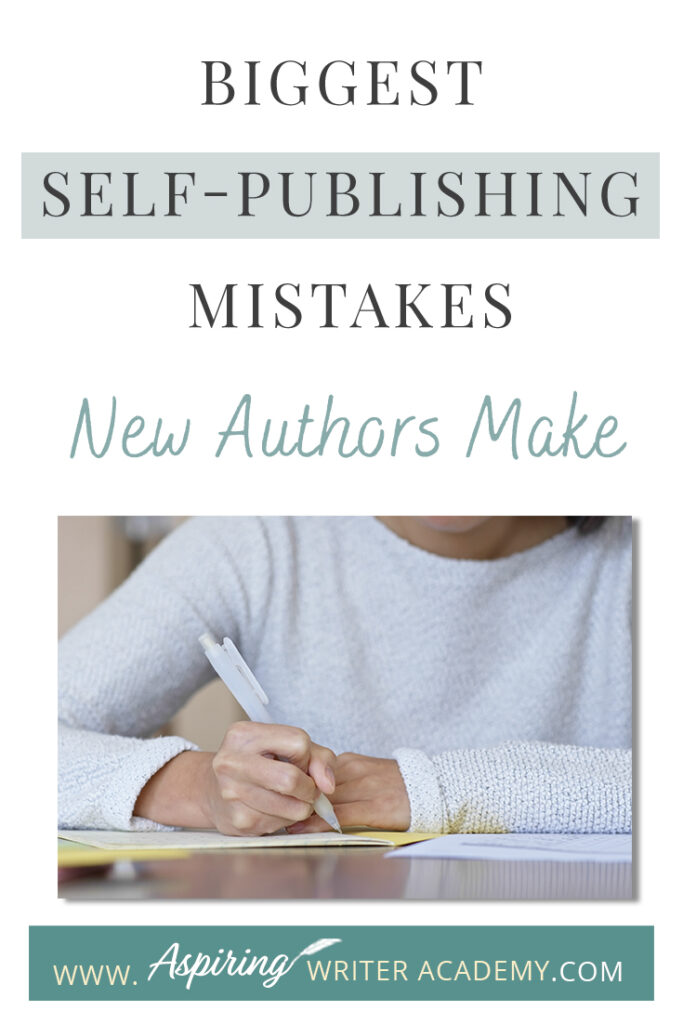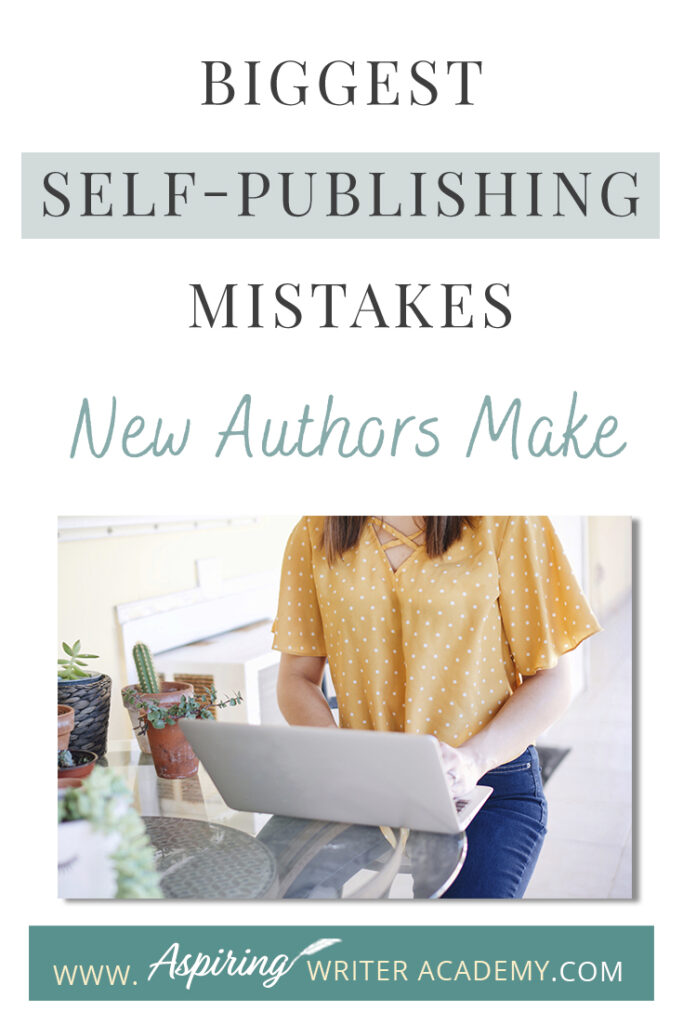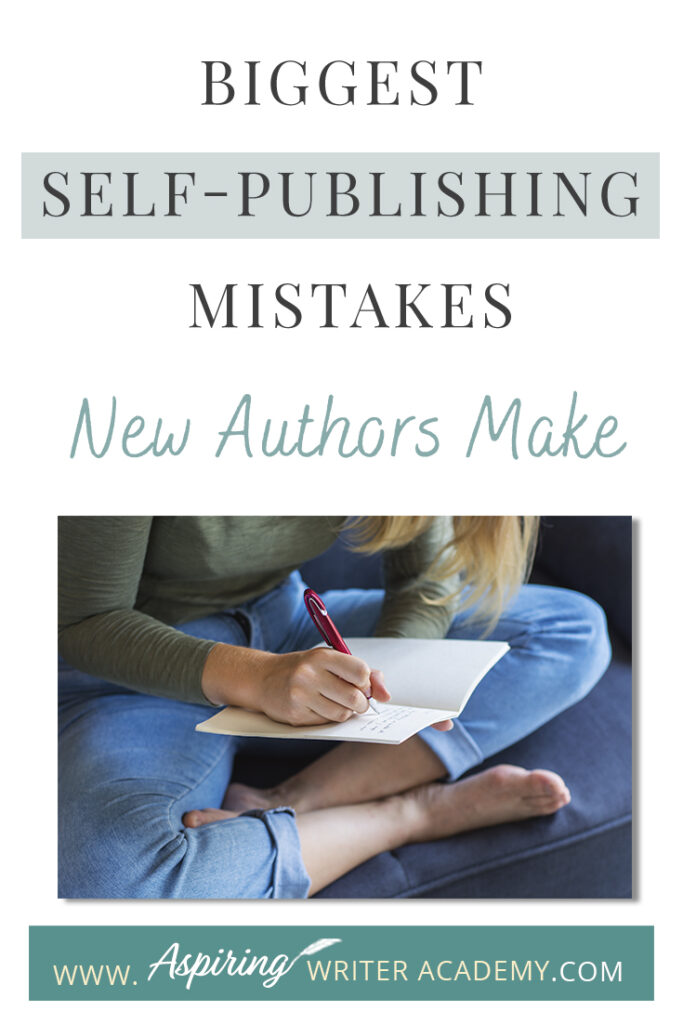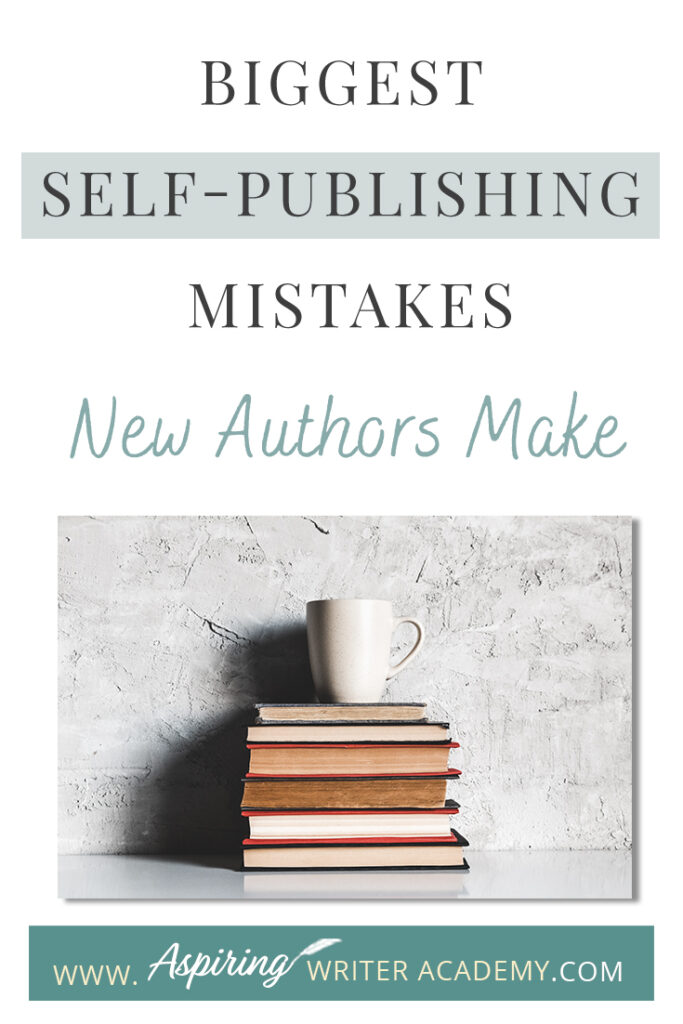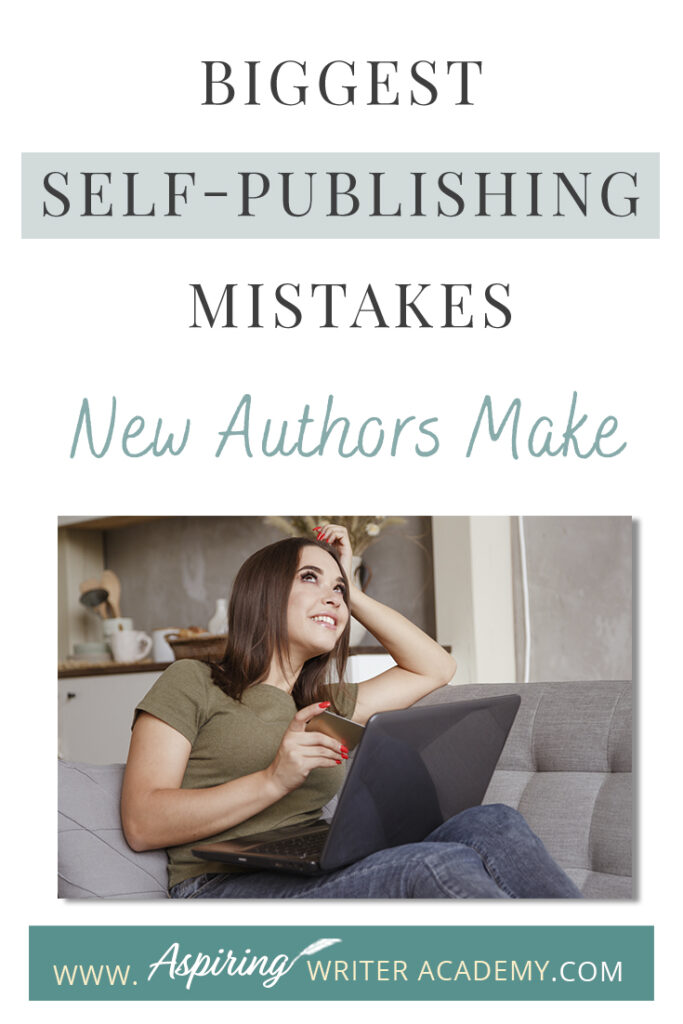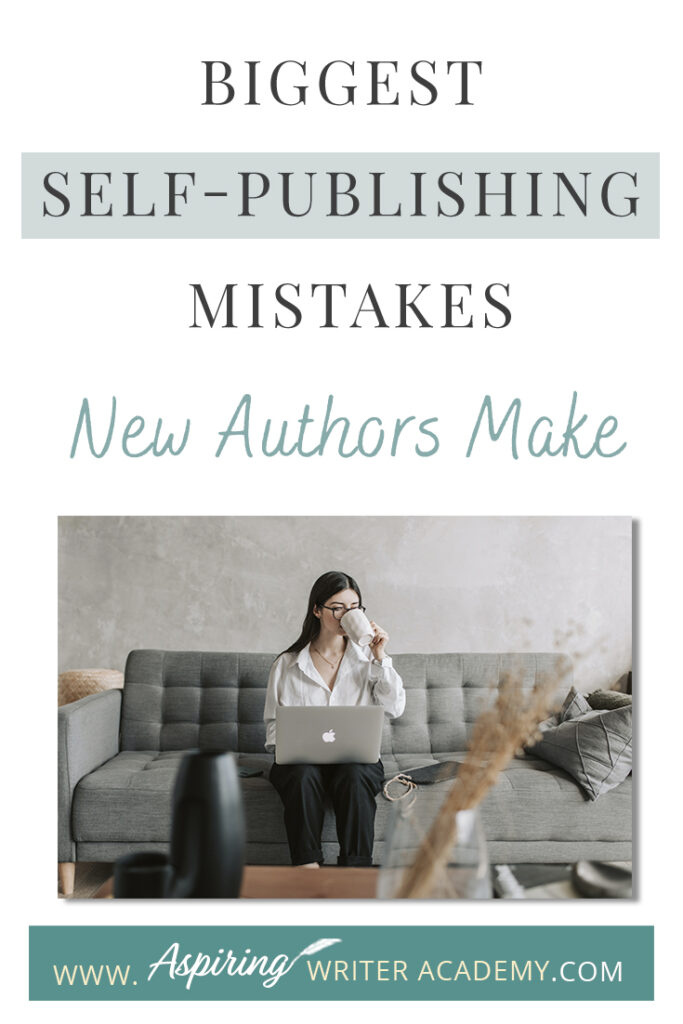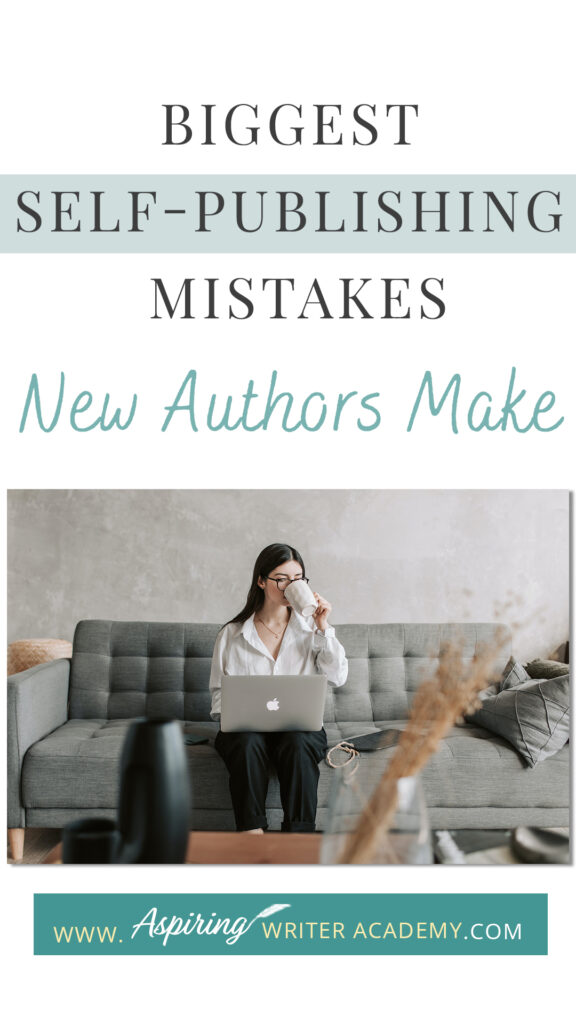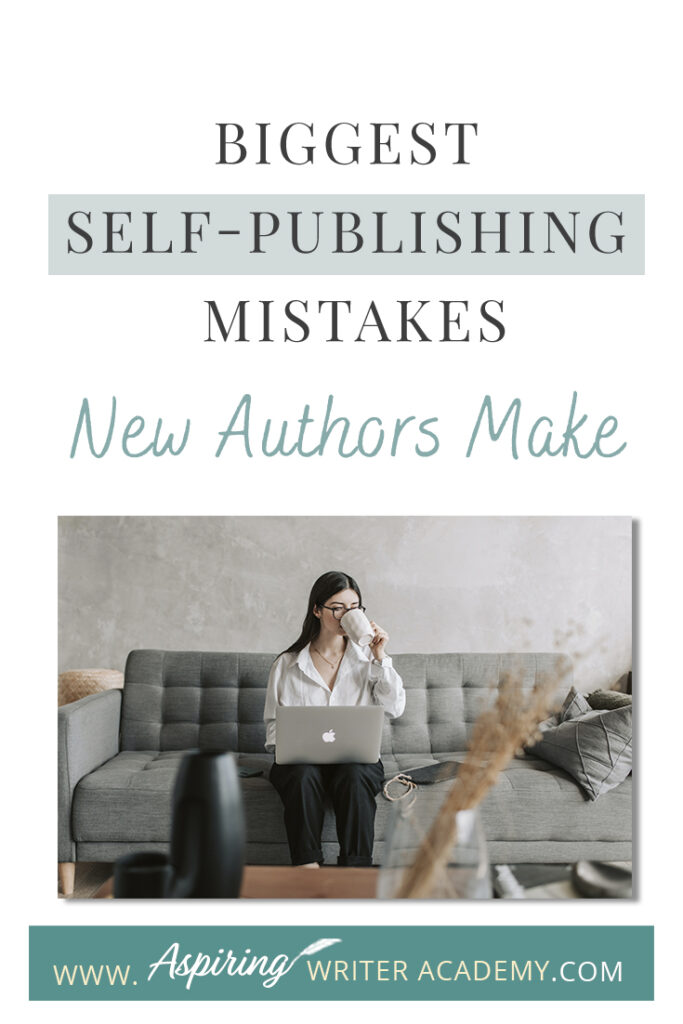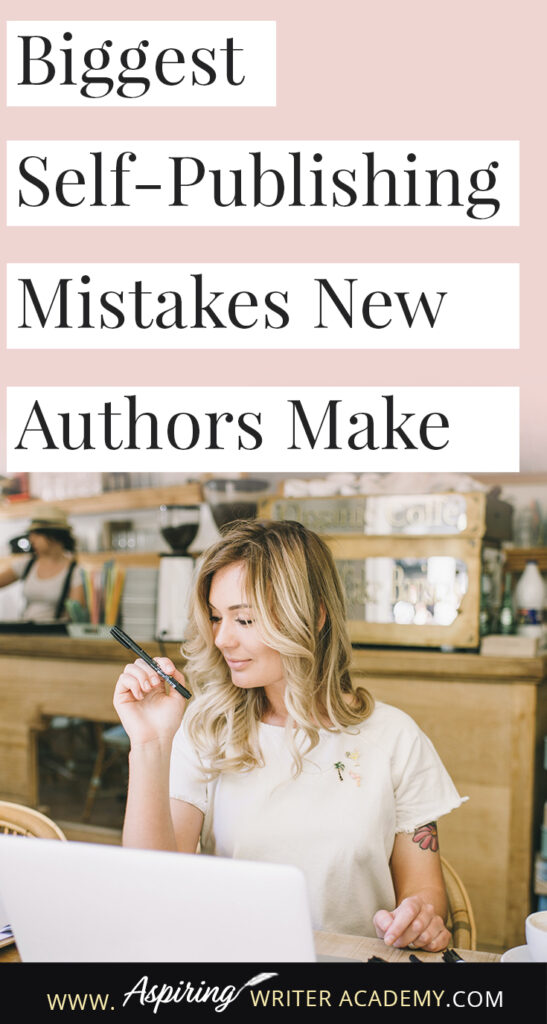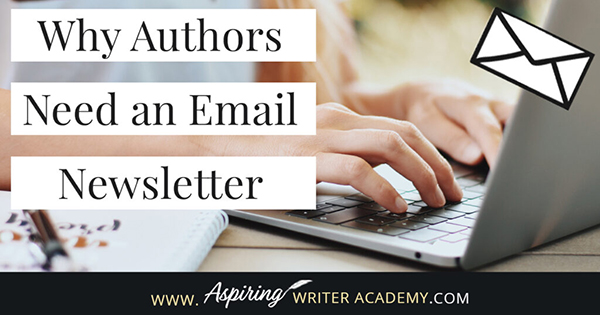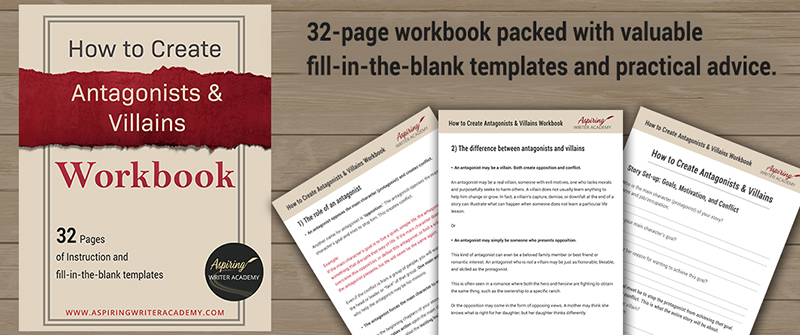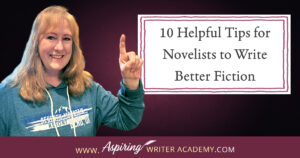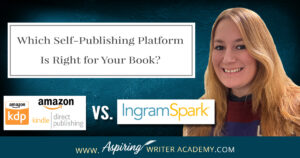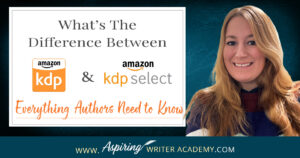Biggest Self-Publishing Mistakes New Authors Make
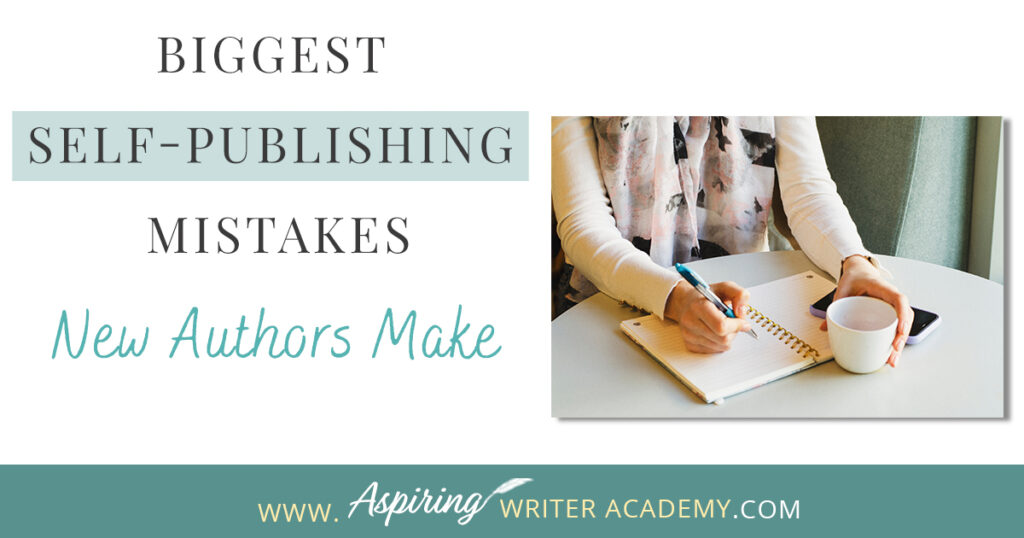
There is a lot to learn about writing and self-publishing. In this blog post, we will cover the Biggest Self-Publishing Mistakes New Authors Make to help you avoid common pitfalls and give your book its best chance of success.
1. Not Getting Professional Editing
At the top of the list of Biggest Self-Publishing Mistakes New Authors Make is when authors choose not to get their books professionally edited.
No editing or bad editing is by far one of the most common and damaging mistakes that new self-published authors make. If you want to be a successful author, you must ensure that you are putting out quality work. If you slack on editing or skip getting professional edits, you are sabotaging your writing career before even getting started.
Many authors make the mistake of thinking they can self-edit their own work. This is a BAD IDEA!
Even the best authors in the world often fail to spot all their mistakes. As a writer, you get too close to the project and need a fresh set of eyes. Getting a skilled editor to comb through your manuscript is the most critical step before publishing your work.
Other writers, beta readers, and self-editing can help you improve your story before sending your manuscript to an editor but this is not a replacement for having professional editing. Professional editors do a line-by-line critique on your manuscript, help improve the quality, and help you polish up your stories in a way that you do not get from the casual beta reader or from other authors just learning themselves.
As an author, you do not want to build up a reputation for having books filled with grammatical errors, spelling mistakes, major plot holes, poor structure, inconsistencies in your story, and other errors. The most common complaint in negative reviews from readers across the board is about poorly edited novels.
You want readers to enjoy your book and wish to read more books from you in the future. You don't want readers to cringe at bad plot holes, be baffled by stories that don't make sense, or have readers absolutely tear your book to shreds in online reviews pointing out grammar errors, typos, and spelling mistakes.
And yes, they will!
2. Bad Book Covers
Unattractive/Ugly book covers! "Don't judge a book by its cover" is one saying that readers/potential buyers completely ignore. Book cover design does matter and is absolutely critical to get book sales.
Sadly, this is a huge area where authors new to self-publishing go wrong. First impressions matter and poorly designed covers are a red flag to readers. Your story could be absolutely amazing but if you have an ugly, boring, or poorly designed cover, no one will read it. Readers will assume if you have a garbage cover that your book would also be garbage and not worth their time. Harsh, but true.
If your book cover does not pique the interest of readers it will get lost in the marketplace and will not get sales.
The purpose of book covers is to grab the attention of potential readers to get them to read your back cover blurb and from there they can decide whether to purchase your book or continue on their way.
Many times, book covers are an area where authors try to cut costs. New authors try designing their own book covers despite having no design experience. Some use free software and premade generic templates that hundreds of others have also used, or maybe they hire their niece or nephew in high school who knows a little photoshop.
It takes professional graphic designers years to hone their craft and generic design templates, and amateur photoshop users can't compete with that knowledge. It's not about just slapping images together, but creating a cover that is not too busy, has the right fonts, and conveys emotion. Just choosing the right color combos can send a message. Book covers need to be designed to look good online and look good in print.
How does your cover look as a tiny thumbnail? Does this book cover fit in with other books in the same genre? There are so many details that go into book cover design that it is best to hire someone who professionally designs book covers.
If you can only pay for two things during your whole self-publishing journey, it should be to pay for professional editing and to get a professional book cover designer.
Authors sometimes spend years working on a novel yet slap on the cheapest self-made covers. If you take months or years out of your life to write a book you want people to read it. Take the time to save up money to hire a professional book cover designer to make an attractive cover that fits the genre of your book.
3. Bad Backcover Blurbs
Another big mistake authors new to self-publishing make is to have a poorly written back cover blurb. You do not want to waste your one shot of snagging a potential reader. Back cover blurbs help readers decide if your book is interesting enough to purchase. A boring or badly written back cover blurb can send potential readers scurrying away.
You need to be able to summarize your book and capture readers' interest in just a few sentences.
There should be a lot of thought and work put into creating a good back cover blurb for your book. This is not something you want to just slap together quickly as you are uploading your book onto the internet. Your book blurb needs to hook the reader, and give them a good feel for who your main characters are and what sort of conflict they will face. Good blurbs tease what will happen but without the major spoilers that ruin the book.
If you would like some direction and insights into back cover blurbs you may want to check out our blog post Fiction Writing: How to Write a Back Cover Blurb that Sells
4. No Book Marketing Plan
Hitting the publish button and hoping that your book sells lots of copies is NOT a marketing plan.
You need to create a marketing plan that will include pre-release promotion months before your book release. Many new authors take time to write their book, but they do not take time to lay out a plan on how they will sell their book.
You cannot leave it to chance that readers might stumble upon your book. Your book is competing against thousands upon thousands of books. You need to market to let people know that your book exists. That saying “if you build it, they will come” is Absolutely Not True! How can people buy your book if they don't know about it?
Book releases require strategy and planning if authors want a successful book launch that actually gets them sales. To make sales you need to treat your book like you are launching a new small business. Small businesses need marketing and so does your book!
Before you self-publish, you can build hype for your book with your email newsletters, and give away prizes to encourage people to pre-order. You can line up your book to be featured on blog tours, you can do book cover reveals, and much more. You can reach out to podcasters and people with YouTube Channels that review books and see about getting interviewed on their channel.
You can make a calendar of how you will market your book each day. When will you do a launch party in-person or online, line up book signings, and do other events? You need time to order postcards, bookmarks, and other promo for your book launch. Set aside a budget for running ads to market your book. Give yourself time to line up marketing for your book and make a plan.
After publishing your book you will have to continually market and work on gaining traction.
5. Not Building Up An Author Platform Before The Book Release
A huge mistake new authors make is that they wait until after publishing their book to start building an author platform. Author platforms are something that new writers can work on developing throughout their whole writing journey. Building a platform is hard work and it's best to start on it as soon as possible.
By doing this, when it is time to announce the release of your book, you have a built-in audience of fans who have been a part of your writing process and watched your writing journey, and are excited to read the book they have heard you talking about for months or years.
You can start building a following on social media and document the process of writing a book. You can create an author website and publish blog posts. You can start building and growing an author newsletter. It takes time to build these up but doing so is 100% worth it.
You need time to develop your author brand. Having an audience that already knows you and that you connect with, will help you sell more books when it comes time for your book launch.
You may want to check out our blog posts What is an Author Platform and Why Do Writers Need One? and Why Authors Need an Email Newsletter
6. No Research And Market Analysis
Before you write your novel you should know in which genre/category your book belongs. What is the average word count for that genre?
You want to make sure that your book fits in with others in that category. Knowing what categories and keywords are good for your book before you self-publish is crucial.
You need to know how your book titles, descriptions, categories, and keywords all work together to help readers find your book.
Not researching metadata can lead to dismal book sales.
7. Not Knowing Your Target Audience
Another common mistake new authors make is not understanding their target readers. A common phrase you hear from new authors is "Oh, my book is for everyone." Your book is NOT for everyone.
You need to figure out - who are your readers? What hobbies do they like? What things do they dislike? How old are the majority of your readers? What gender is the majority of your audience?
For example, marketing toward a teenage boy is a lot different than marketing toward a 50-year-old woman. Create a user profile detailing who is most likely to enjoy your book. Having a targeted audience and knowing their likes and dislikes will save you a lot of money when trying to get the best ROI on your ads.
8. Not Getting Books Formatted Correctly
Self-published books that do not look and feel professional to readers are a major turn-off. You do not want lines and pages looking all wonky from device to device. You do not want your readers cringing at the jumbled layout of your book. You want them to focus on the story. If you want to build a career as an author, book quality is a must.
Every book publishing platform has different formats that they accept. Some take Microsoft Word documents, Adobe PDF files, MOBI, or EPUBs. Authors need to research the technical requirements and get their manuscripts formatted to look professional on each platform. You cannot just upload your Word Doc.
Formatting ebooks is relatively easy and with the right determination and study ethic, authors can do their own formatting. Print books are a bit more technical but it is possible to learn programs like Adobe InDesign. Authors just have to know that formatting for print can be extremely difficult and may take them months or years to learn the skills.
Hiring a professional to format your book can save you a major headache and help save you time so you can get back to writing more books.
9. Rushing The Publishing Process
Many new authors are so eager to get their stories published they rush. They don't take the time to do things properly and just try to throw their book onto the internet as quickly as possible. This is a critical error that often dooms their book to failure. Don't kill your book's potential by being hasty. You want to give your story its best shot at success.
Traditionally published books may take up to a year or two before they are released. Successful self-published authors often take 6 months to promote their upcoming release. During this time authors create marketing plans and build up excitement for their launch day. Authors try and get as many pre-orders as possible. Taking your time to build a plan and line up promo can only help your book.
10. Spamming Everyone On Social Media
Your friends and family do not wish to be spammed with endless self-promotion. They may love and support you but they may not be your target audience and that's okay. You don't want to annoy everyone around you. It is good to build up a community of people that love reading your genre of books on a separate author account.
You can still occasionally post about your new books on your personal account but you can save the bulk of author news and updates for your author's social channels. Even on there, try to keep it 90% fun and educational content, and only about 10% promotional content. You want to post fun content that gets people excited about your book without bombarding your fans with "Buy my book, buy my book" posts.
11. Not Getting Multiple Beta Readers
Before publishing your book it is good to get multiple beta readers. More eyes and feedback on your story will help you spot inconsistencies, plot holes, and parts of the story that might not flow right. Having feedback on your story can help you polish your story to be the best it can be before paying for an editor. Remember beta readers are great but you can't use them to replace a professional editor. Beta readers can also leave book reviews online.
12. Picking A Bad Time To Release Your Book
There are periods of time when people are busier and may not have time to think about purchasing a book to read. Being aware of when certain genres sell better can be critical to getting more book sales.
New authors also may not be aware that books that take place on certain holidays should not be released on the day of that holiday but much earlier. For example, Christmas books should not be published at Christmas, but maybe during September or October. That way, authors have time to market their books and readers have time to purchase a book to read.
Oftentimes on the day of a particular holiday, everyone is busy. A book that takes place on Valentine's day, Easter, Fourth of July, Halloween, Thanksgiving, or any other holiday needs to be released before that time.
There are times of the year when romance books sell better, times of the year when adventure and fantasy books sell better, and other times when horror and paranormal books sell better. Doing your research as to when is the best time to release your book can help you receive more sales.
13. Little To No Book Reviews
Potential readers want to see your book reviews to see what other people think before they buy it. You need as many reviews as possible as soon as your book releases to encourage more sales. An author can line up blog posts, interviews, and guest blog tours in advance to help get book reviews. A good goal is to get at least 10 book reviews the first week of your book's release.
14. Charging The Wrong Price For Your Books
A big mistake new authors make is to either overprice or underprice their books.
Many new authors price their books too way too high and no one buys their books. Then others, price their books too low which can make people suspicious that the book isn't very good if it needs to be priced that low.
Authors need to do their research on the pricing of other books in their genre with the same page count. You need to find that happy medium price point for your books.
15. Quitting, If Your First Book Flops
Building a writing career is a marathon, not a race. Unfortunately, many authors quit if their first book gets bad reviews and does not get many sales. Many authors who have built amazing careers look back on their first few books and laugh.
Your writing and marketing ability improves with time and experience. One-hit wonders rarely ever happen. Persistence is the key to a successful writing career. If you keep at it and work to improve your writing, your odds of success will dramatically improve. Don't Give Up!
I hope that this blog post, Biggest Self-Publishing Mistakes New Authors Make, helps you make smart decisions to give your book its best chance of success.
If you have any questions or would like to leave a comment below, we would love to hear from you!
Related Blog Posts:
Do you find it difficult to create compelling antagonists and villains for your stories? Do your villains feel cartoonish and unbelievable? Do they lack motivation or a specific game plan? Discover the secrets to crafting villains that will stick with your readers long after they finish your story, with our How to Create Antagonists & Villains Workbook.
This 32-page instructional workbook is packed with valuable fill-in-the-blank templates and practical advice to help you create memorable and effective antagonists and villains. Whether you're a seasoned writer or just starting out, this workbook will take your writing to the next level.
Our Goal for Aspiring Writer Academy is to help people learn how to write quality fiction, teach them to publish and promote their work, and to give them the necessary tools to pursue a writing career.
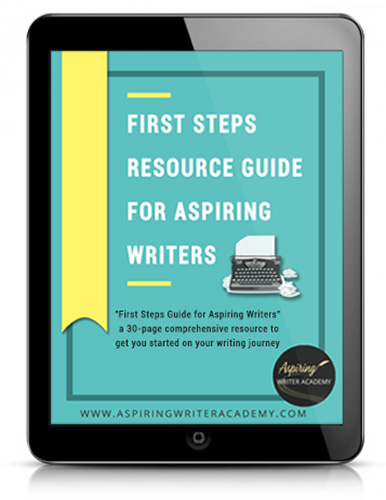
ENTER YOUR EMAIL
TO GET YOUR FREE
"First Steps Guide for Aspiring Writers" a 30-page comprehensive resource to get you started on your writing journey.
Other Blog Posts You May Like
Why Authors Need an Email Newsletter
What is an Author Platform and Why Do Writers Need One?
What Authors Need to Know About ISBN Numbers Before Self-Publishing
How to Spot Publishing Scams & How To Avoid Them
How to Easily Make a YouTube Banner in Canva for Free
How to Make a YouTube Banner (Adobe Photoshop Channel Art Tutorial with Free Template)
How to Make a YouTube Banner (Adobe Photoshop Channel Art Tutorial with Free Template)
How to Upload and Order Bookmarks on GotPrint
How to Upload and Order Bookmarks on GotPrint
23 of the Best Free Stock Photo Sites Every Writer Should Be Using
How To Create A Google Account For Your Author Platform
How To Set-Up and Install Grow by Mediavine To Boost Your Blog’s Social Media Traffic
How to Create and Set-Up a Professional Author Page On Facebook
Samantha Panzera is an adventurous travel blogger, graphic designer, and multi-media business entrepreneur who uses the experience she’s gained over the years to teach aspiring writers the skills they need to build an author platform and take their careers to the next level.
